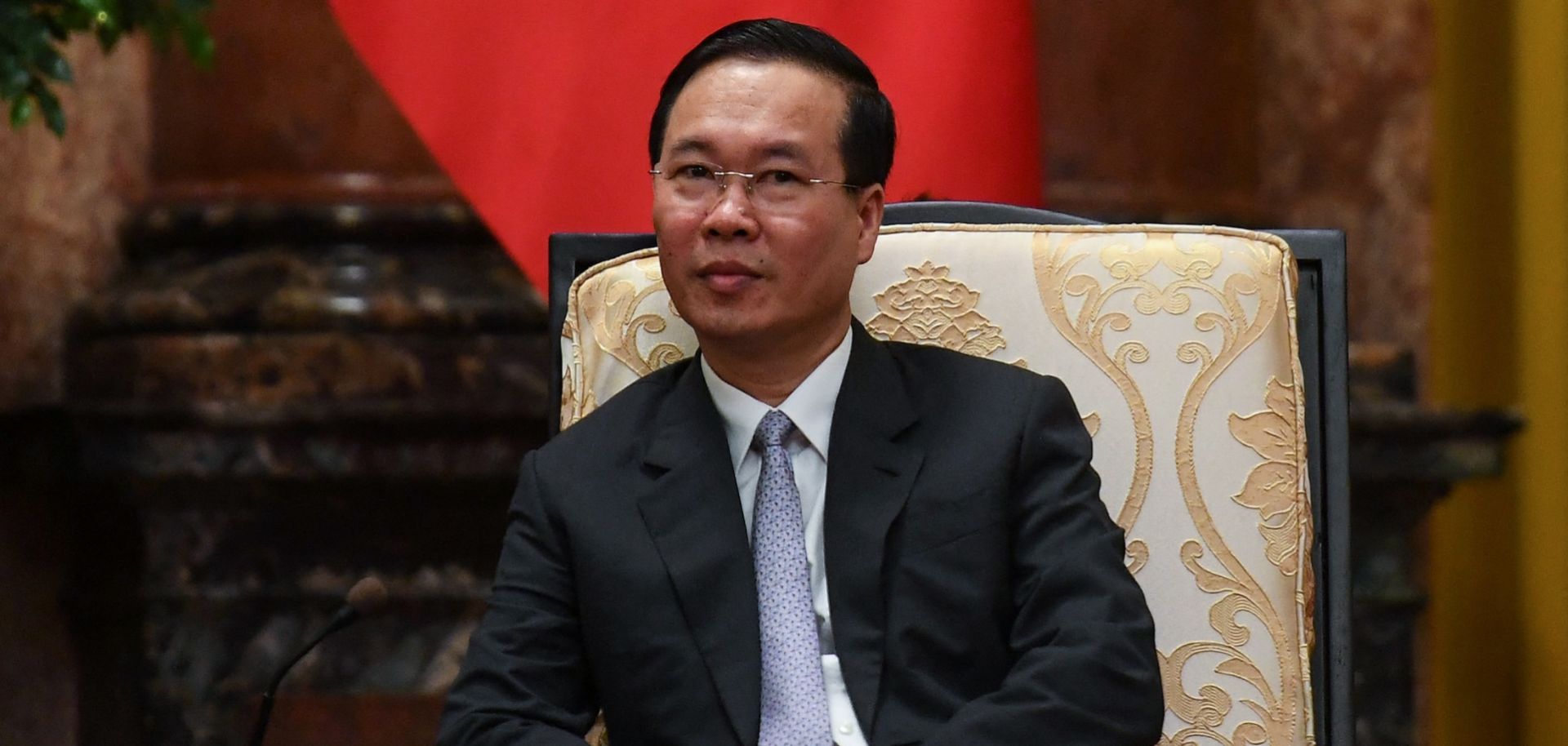The resignation of Vietnam's president will likely further empower the country's national security apparatus, which in the longer term could harm the country's business climate. On March 20, the Central Committee of the Vietnamese Communist Party, or VCP, accepted the resignation of President Vo Van Thuong for breaking unspecified party rules. According to the VCP, Thuong violated ''regulations on what party members cannot do,'' but the authorities did not elaborate on what exactly those rules were. He was also relieved of his membership in the Politburo (where he had been ranked the second-most powerful member, behind only VCP General Secretary Nguyen Phu Trong), the 13th Party Central Committee and the National Assembly, as well as his role as head of Vietnam's defense and security council. The VCP's statement said Thuong filed a request to resign from these positions, which was granted, and that he will retire from politics.
...

